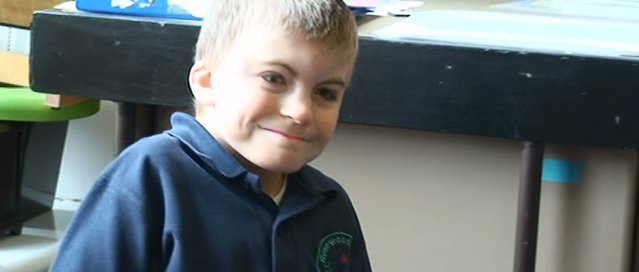Angelman
Where are people now? New research looking at changes in age with people with genetic syndromes!
Over the last ten years researchers from the Cerebra Centre for Neurodevelopmental disorders have frequently asked families what they would like research to address. This question is posed so that studies can be developed that fit with families needs and interests. Often, the key question that families pose is ‘what can I expect in the future for my child?’ This is a question about change, growth and development, and it highlights the uncertainty that many families feel when looking towards the future. Of course we cannot say for certain what will happen to children as they grow older as there are so many factors that can affect this; however, we do know that a person’s genetic syndrome may impact on the way a person develops and knowing a little more about this might be helpful to families.

As researchers and clinicians, we often feel that our current answers to families’ questions about change over time are unsatisfactory because much of the research that has been carried out has been done in a ‘snapshot' manner. What this means is that at one point in time researchers collect information about individuals with genetic syndromes across all age groups. Researchers then look for similarities and differences across age groups, which produces a ‘snapshot’ of how things currently are for people. However, snapshot style research is not always very good at predicting outcomes for people who are currently children. One reason for this is that children born today may have more support and input from services than children had years ago and this may affect development. In addition, this type of research does not tell us about factors that predict health and well-being over time. If we want to improve the quality of life for people with genetic syndromes this information is very important, but we can only get this information by following specific individuals as they grow up. This clearly takes time.
What is exciting is that a research project following up individuals over time has been running for a number of years and results will shortly be made available. Around ten years ago, families of children with genetic syndromes started to return questionnaire packs about their children’s health and behaviour, and many of these families have completed this questionnaire pack twice more over this time period. These families have shown such commitment to the research and it would not have been possible without them. A doctoral researcher, Jessica Penhallow, has joined the Cerebra Centre team to follow up these families for a final time to find out how individuals have changed and developed. This follow-up will be focusing on Angelman, Cri du Chat, Cornelia de Lange, fragile X, Lowe and Smith-Magenis syndromes. This study will overcome many of the limitations of previous research and will start to answer some of those questions that families are most interested in. The current phase of the study will run from 2014-2017, during which preliminary results will be made available to families through the website and at parent conferences and events.
We are looking forward to sharing the findings with you!
The Cerebra Centre Team



